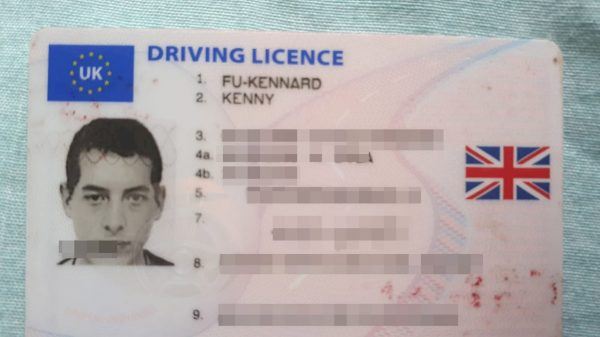A former soldier from the United Kingdom who thought it would be funny to change his last name is now saying the joke blew up in his face when he was denied a passport.
A 33 year-old man formally known as Kenny Kennard changed his name to Kenny Fu-Kennard in 2016, getting a new driver’s license with his changed moniker. However, when he tried to get a new passport this year, his application was turned down because his name “may cause offense.”
Kenny said that while he loves to travel, he does not want to change his name back, so he is currently facing a lifetime of just being in the U.K.
“I’d decided to change my name to Fu-Kennard a few years back,” he explained. “When I’d had to apply for a driving license, it was accepted fine, so I figured it wouldn’t make much difference in applying for a passport.”
“How wrong I was!” Kenny continued. “I got refused on grounds that my name could cause offense or was vulgar. I complained, but they upheld their decision so I complained again. I was then told they’d keep the fee for administration costs.”
“On the one hand, I find the whole thing funny — as do all of my friends,” the supermarket worker said. “But I’m also finding it hard to believe the name could be construed as anything but funny and slightly ridiculous. It’s just a joke.”

This isn’t the first time Kenny has changed his name. When he was 16, he changed his name to “Coco Kenny,” but he was told to change it back when he joined the Army at 19 because it was “immature.” After serving his country for eight years, he decided to “change it to something with a bit of ‘fun’ about it.”
Since he knew he would be applying for jobs, he decided to “play it a bit safe” and went with “Fu-Kennard” because “not everyone gets the joke.”
“Life’s too short to be boring,” he explained.
The official passport guidelines list various “names that may cause outrage or offense” that could be classed as “unacceptable” and not fit for a passport. These names include “the use of swear words; sexually explicit references; inappropriate religious connotation; is vulgar, offensive, or libelous to an individual; makes use of a name of a person living or dead which may cause public concern.”
“This applies to phonetic, as well as actual use of words comprising of part or the entire name,” the guidelines continue.
Kenny said that no matter what, he won’t change his name back.
“I only have one red line, though – I’m keeping my surname,” he said. “I don’t want to change it again, especially because they’re restricting my freedom. I like Fu-Kennard.”
COMMENTS POLICY: We have no tolerance for messages of violence, racism, vulgarity, obscenity or other such discourteous behavior. Thank you for contributing to a respectful and useful online dialogue.